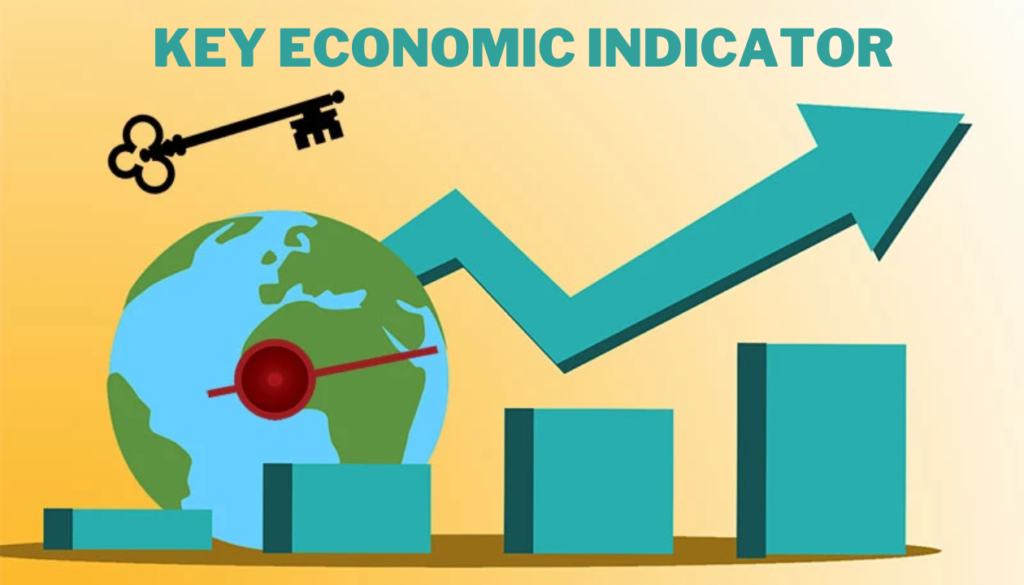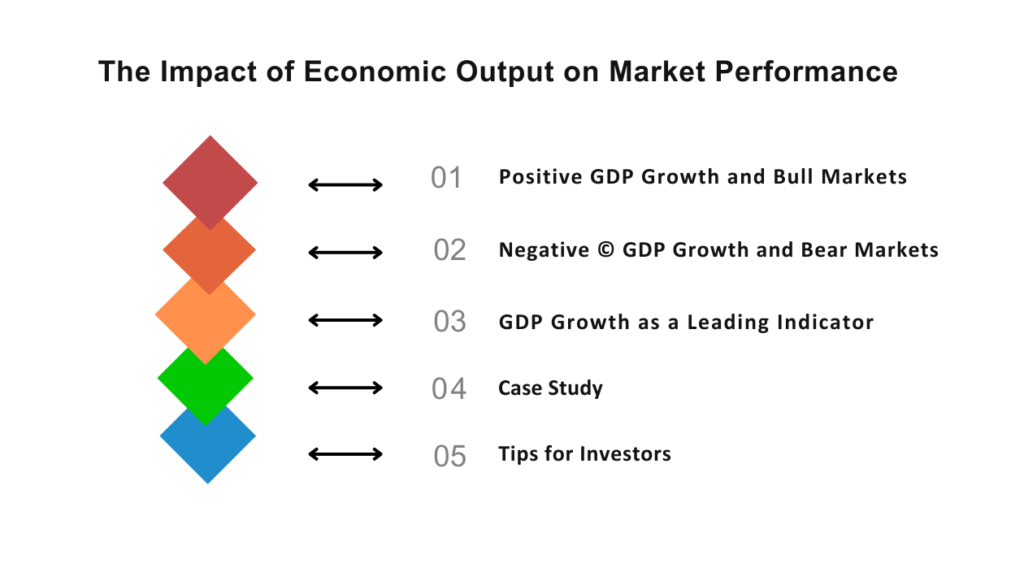Economic indicators are vital tools that provide insights into the health of an economy and significantly influence stock market performance. For investors and analysts, understanding these indicators is crucial for making informed decisions and anticipating market trends. This blog will delve into how economic indicators affect stock market performance, the key indicators to watch, and strategies for navigating the stock market based on these economic signals.
Table of Contents
1. What are Economic Indicators?
Economic indicators are statistical metrics used to gauge the overall health of an economy. They include data on various aspects such as employment, inflation, production, and gross domestic product (GDP). These indicators are essential for policymakers, investors, and economists as they provide a snapshot of economic activity and trends. By analyzing these indicators, stakeholders can make informed decisions and predictions about future economic and market conditions.
Key Economic Indicators and Their Impact on the Stock Market

A. Gross Domestic Product (GDP)
GDP measures the total value of goods and services produced within a country over a specific period. It is a comprehensive indicator of economic health. When GDP is growing, it signals a healthy and expanding economy, which often leads to higher corporate earnings and rising stock prices. Conversely, a declining GDP indicates economic contraction, which can lead to lower earnings and falling stock prices.
B. Inflation Rates
Inflation measures the rate at which the general level of prices for goods and services is rising. Moderate inflation is typically a sign of a growing economy. However, high inflation can erode purchasing power and lead to higher interest rates, negatively impacting stock market performance. Conversely, deflation (a decrease in prices) can signal weak demand and economic stagnation, also negatively affecting stock markets.
C. Employment Rates
Employment rates, particularly the unemployment rate, indicate the percentage of the labor force that is unemployed and actively seeking work. High employment levels generally indicate a strong economy, leading to higher consumer spending and corporate profits, which are positive for the stock market. On the other hand, high unemployment rates can signal economic distress, reducing consumer spending and corporate earnings, negatively affecting stock market performance.
D. Interest Rates
Interest rates, set by a country’s central bank, influence borrowing costs and consumer spending. Lower interest rates make borrowing cheaper, encouraging spending and investment, which can boost stock prices. Conversely, higher interest rates increase borrowing costs, reduce spending and investment, and can lead to lower stock prices.
E. Consumer Confidence Index (CCI)
The CCI measures the degree of optimism that consumers feel about the overall state of the economy and their personal financial situation. High consumer confidence typically leads to increased consumer spending, driving economic growth and boosting stock market performance. Low consumer confidence, on the other hand, can lead to reduced spending and economic slowdown, negatively impacting stock prices.
2. How Investors Use Economic Indicators
Investors closely monitor economic indicators to make informed investment decisions. By understanding the current economic environment and anticipating future trends, investors can adjust their portfolios to mitigate risks and capitalize on opportunities. Here are some strategies investors use based on economic indicators:
A. Diversification
Investors diversify their portfolios across different sectors and asset classes to spread risk. By doing so, they can protect their investments from sector-specific downturns and benefit from growth in other areas.
B. Timing Investments
By analyzing economic indicators, investors can time their investments to take advantage of market cycles. For example, investing in cyclical stocks during periods of economic expansion and shifting to defensive stocks during economic downturns can help maximize returns.
C. Hedging
Investors use hedging strategies, such as options and futures, to protect their portfolios from adverse market movements. Economic indicators can signal potential market volatility, prompting investors to implement hedging strategies.
D. Sector Rotation
Investors may rotate their investments among different sectors based on economic conditions. For instance, during economic growth, they might favor sectors like technology and consumer discretionary, while during a slowdown, they might shift to utilities and healthcare.
E. Long-Term Focus
While short-term market movements can be influenced by economic indicators, maintaining a long-term investment focus helps investors ride out market volatility and benefit from overall economic growth.
Conclusion
Understanding how economic indicators affect stock market performance is crucial for making informed investment decisions. By monitoring indicators such as GDP, inflation, employment rates, interest rates, and consumer confidence, investors can anticipate market trends and adjust their strategies accordingly. Whether through diversification, timing investments, hedging, sector rotation, or maintaining a long-term focus, leveraging economic indicators can help investors navigate the complexities of the stock market and achieve their financial goals.
Frequently Asked Questions
1. What are economic indicators, and why are they important for the stock market?
Ans. Economic indicators are statistical metrics that reflect the economic health of a country. They are important for the stock market because they provide insights into economic conditions, helping investors make informed decisions.
2. How does GDP growth affect stock market performance?
Ans. GDP growth indicates a healthy and expanding economy, which often leads to higher corporate earnings and rising stock prices. Conversely, declining GDP can signal economic contraction and negatively impact stock prices.
3. What is the impact of inflation on the stock market?
Moderate inflation is typically positive for the stock market, indicating economic growth. However, high inflation can erode purchasing power and lead to higher interest rates, negatively affecting stock market performance.
4. How do employment rates influence the stock market?
Ans. High employment rates signal a strong economy, leading to higher consumer spending and corporate profits, which positively impact the stock market. High unemployment rates indicate economic distress and can negatively affect stock market performance.
5. Why is consumer confidence important for the stock market?
Ans. High consumer confidence leads to increased consumer spending, driving economic growth and boosting stock market performance. Low consumer confidence can result in reduced spending and economic slowdown, negatively impacting stock prices.
